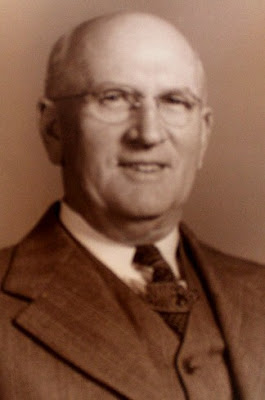Dedicated to American political figures with strange, odd, and unusual names! ©
Wednesday, August 31, 2022
Covington Dirickson Powell (1887-1954)
Monday, August 29, 2022
Orello Eugene Frink (1855-1916)
"Even if I am a candidate for state representative on the democratic ticket, I shall continue to put up Fort Lupton products more enthusiastically than ever. My wife will see to the management while I am out campaigning."
One of three candidates vying for the Democratic nomination, Frink polled third on primary election day in September, garnering 572 votes to Charles Philip's winning total of 680. Following his defeat Frink continued with his business interests and although a member of the Methodist Episcopal Church, was remarked as having "contributed generously to the support of all churches." Frink died of heart failure at his Fort Lupton home on November 11, 1916, aged 61. His wife Etta survived him by nearly forty years, dying at age 93 in 1952. Both were interred at the Hillside Cemetery in Fort Lupton.
Saturday, August 27, 2022
Nazaire Elie Biron (1873-1952)
Friday, August 26, 2022
Quartus Wright (1813-1887)
"a practical farmer of no little note, his corn, fruit, and clover being "unexcelled.'''
Wright began an interest in local politics in the 1870s, winning election to the Landis township committee, and later served several years as both treasurer and chairman. Upon the creation of the borough of Vineland in May 1880 Quartus Wright (then serving as chair of the Landis township committee) was elected as the borough's first mayor "by a small majority". He served one term, leaving office in 1881, and was remarked to have built a "showplace" home on Montrose street in that city. In early 1887 he suffered a paralytic stroke, and in March of that suffered a second stroke, which contributed to his death on March 7, 1887, at age 73. He was preceded in death by his wife Olive and two children and was briefly interred at the Siloam Cemetery in Vineland. Following an indeterminate period, he and his wife were returned to Pennsylvania for burial in the Wrightsville Cemetery, the same resting place as that of his parents and siblings.
From the Vineland Evening Journal, March 8, 1887.








